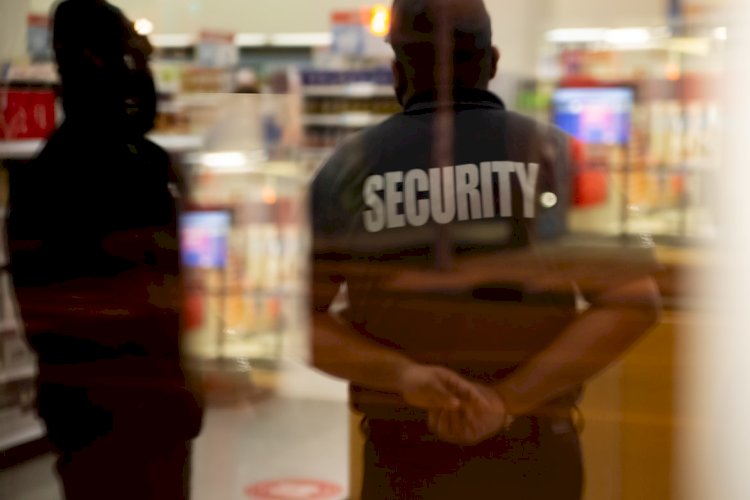The Critical Role of Conflict Management for Security Personnel
4 weeks ago - 3 min read
Security professionals often face high-stress situations where emotions run high, making effective conflict management an essential skill. The ability to defuse tensions, de-escalate confrontations, and resolve disputes efficiently is key to maintaining safety, preventing incidents from escalating, and ensuring positive outcomes.
This article explores why conflict management is a vital component of security operations and how well-trained personnel can enhance safety, professionalism, and legal compliance.
Why Conflict Management is Essential in Security
Security personnel are often the first line of defence in managing disputes, disturbances, and potentially dangerous situations. Proper conflict resolution training enables them to:
- ✅ Enhance Safety – Protect the public and property from harm
- ✅ De-escalate Conflicts – Prevent violent confrontations
- ✅ Maintain Professionalism – Build trust with the public and employers
- ✅ Improve Customer Service – Ensure positive interactions
- ✅ Stay Legally Compliant – Reduce liability risks
- ✅ Strengthen Teamwork & Communication – Improve coordination during incidents
Each of these aspects contributes to more effective security operations, fostering a safer and more controlled environment.
1. Enhancing Safety & Preventing Escalation
One of the primary roles of security personnel is to protect individuals and property. Unresolved conflicts can quickly spiral into dangerous situations, posing risks to bystanders, staff, and security teams themselves.
Effective conflict management ensures:
- Quick intervention before tensions escalate
- Strategic decision-making to diffuse hostility
- A controlled approach that prioritizes non-violent resolution
By handling disputes early, security personnel create safer environments and prevent minor incidents from turning into serious threats.
2. De-escalation Strategies to Manage High-Tension Situations
Security teams must be trained to respond calmly and effectively to conflict. De-escalation techniques involve:
- 🔹 Active Listening – Understanding concerns before responding
- 🔹 Remaining Calm & Composed – Setting the tone for a peaceful resolution
- 🔹 Non-Threatening Body Language – Reducing perceived aggression
- 🔹 Verbal De-escalation Techniques – Using clear, firm but respectful language
- 🔹 Strategic Positioning – Maintaining a safe distance while asserting control
When applied correctly, these techniques help security teams defuse volatile situations without resorting to force.
3. Professionalism: Building Trust & Credibility
How security personnel handle conflicts reflects directly on their professionalism and the reputation of the organization they represent. Professional conflict resolution:
- Demonstrates competence and control
- Encourages public confidence in security teams
- Upholds the integrity of the business or venue
A professional approach not only maintains order but also reassures customers, employees, and visitors that security personnel can handle issues efficiently and fairly.
4. The Customer Service Aspect of Security
Security personnel frequently interact with the public, making customer service a key component of their role. Effective conflict resolution skills allow them to:
- ✔️ Address complaints and concerns with empathy
- ✔️ Provide assistance while maintaining authority
- ✔️ Prevent minor disputes from damaging customer experiences
Well-trained security teams contribute to a positive and safe environment, reinforcing trust in the establishments they protect.
5. Legal Considerations: Staying Within the Law
A poorly managed conflict can lead to legal consequences for both security personnel and their employers. Proper training helps teams:
- Handle disputes within legal boundaries
- Avoid unnecessary use of force
- Reduce the risk of lawsuits or complaints
By focusing on communication and non-violent resolution, security professionals can manage conflicts effectively while staying legally compliant.
6. Teamwork & Communication: The Foundation of Effective Security
Strong teamwork and communication are critical in managing conflicts. Security personnel must:
- Share information in real-time to assess threats
- Coordinate responses to incidents
- Work collaboratively to implement de-escalation strategies
A well-coordinated security team ensures a swift, efficient, and organized response to any situation.
Why Conflict Management Training Matters
Without proper conflict resolution training, security teams risk escalating situations instead of controlling them. Investing in conflict management skills results in:
- Safer environments for employees, customers, and businesses
- Increased professionalism and trust in security personnel
- Reduced risk of physical altercations or legal issues
- Better public relations and customer satisfaction
Get Trained Security Personnel for Your Business
At Birmingham Security, we provide highly trained security staff equipped with advanced conflict management skills to handle disputes effectively and maintain a safe environment.
📞 Call us today at 0121 769 1929 or Request a Quote to learn how our security solutions can protect your business.